A Conversation with Rebecca Marshall of Lheidli T’enneh Nation - on Reclaiming her Identity & the Benefits of a Maritime Career for Indigenous Women
Avneet Takhar
Based as a guest on the lands of Lekwungen Territory (known by the colonial name of Victoria, BC), and W̱SÁNEĆ peoples, Marshall is of a small percentage of women– less than 5% to be exact, that make up the skilled trades workers in Canada.
She started her journey over 10 years ago, gradually becoming a Red Seal Endorsed Professional Cook and working as a chef on an emergency towing vessel on the coast of British Columbia.
As someone who is passionate about advocating for increased skilled trades participation for people from underrepresented groups, she’s seen first-hand how this line of work offers continuous learning and skills development.
Sharing her experience as a First Nations crew member, Marshall is eager to help others achieve the fulfillment that she has come to have from this interesting career path.
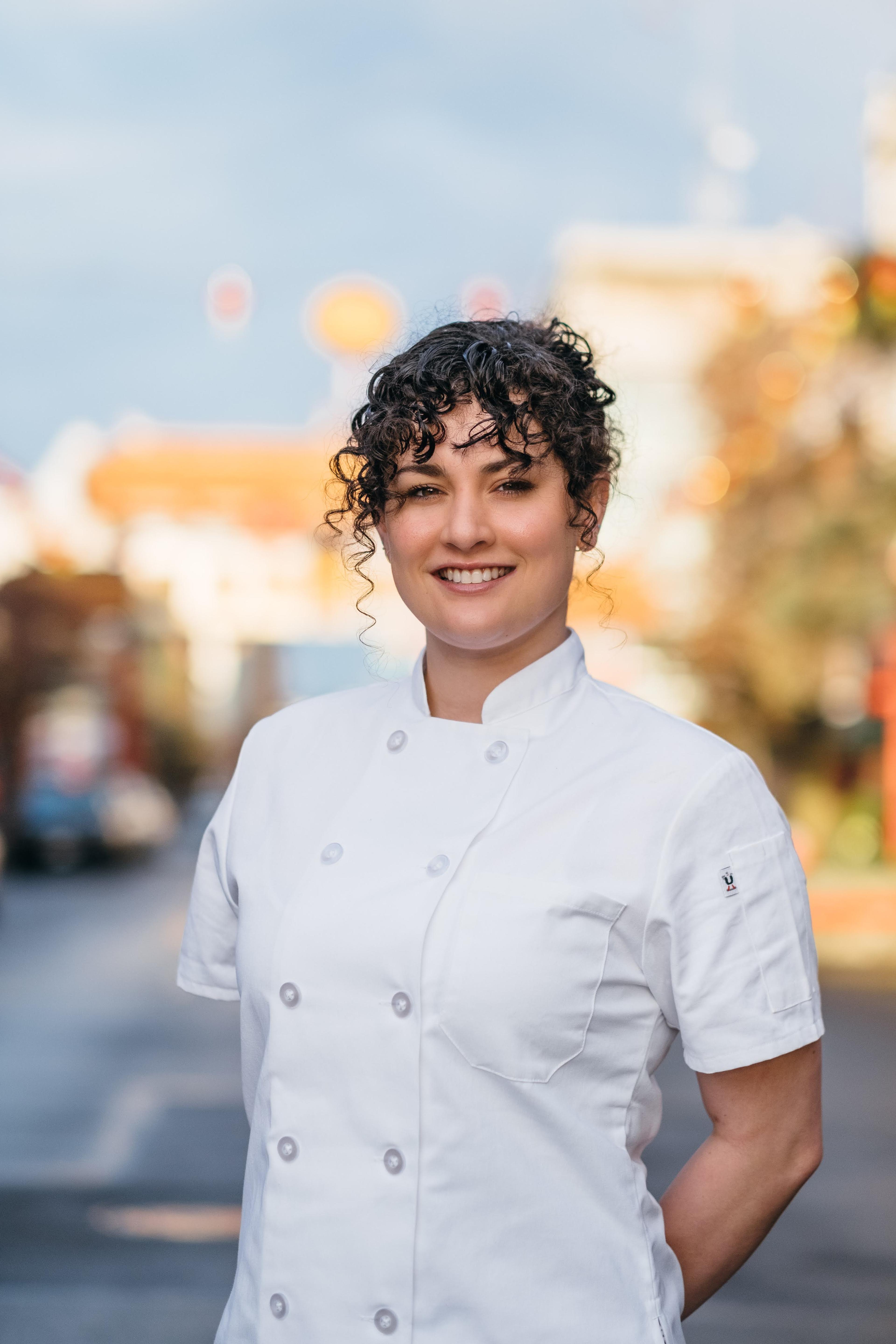
Rebecca, could you tell us more about how you got into the skilled trades?
Rebecca Marshall: Back then I was at a very difficult point in my life, and not on a good path. I needed to make money to live and was offered a job as a dishwasher. I enjoyed the task-oriented work and the feeling of achievement I got from learning and expanding my food knowledge. Bit-by-bit, my skills improved, and I was able to get back on track.
Eventually, one of my bosses told me that he believed I could get my Red Seal (an endorsement that is a seal on your provincial or territorial trade certificate. It shows that you have the knowledge and skills necessary to practice your trade across Canada). So, he asked me to be his apprentice. Having someone see that I had something in me, really lit a fire and kicked me into gear.
Self-confidence comes from proving to yourself that you can do things outside of your comfort zone. Starting as an apprentice really helped me develop along the way.
You were recently granted membership of the Lheidli T’enneh First Nation. Regarding this, has it had any impact on the way you identify yourself or on your working environment?
Rebecca Marshall: I still feel shy being open about it, because there are many unknowns for me about what is deemed appropriate. When I’m feeling that imposter syndrome creep in, I remind myself that my ancestors are with me and that I am honouring them with my efforts to learn more about their culture and ways of knowing, being, and doing.
I know that gaining status is just a piece of paper. But it has been a validating experience and given me the confidence to stand up as an Indigenous person who has a lot to offer in the way of helping others succeed.
I want people to experience the satisfaction that I feel with regards to career development in the skilled trades and the maritime industry!
On the day I received word that I had been granted status, I was at sea away from family and friends. I decided to stand up in front of my crew to tell them about why it was meaningful to me. And to also thank them for the important role they play in creating an inclusive environment-uplifting me as an Indigenous woman in the trades.
It was well received, and I felt that it was a good way to mark the occasion and empower my crew as allies.
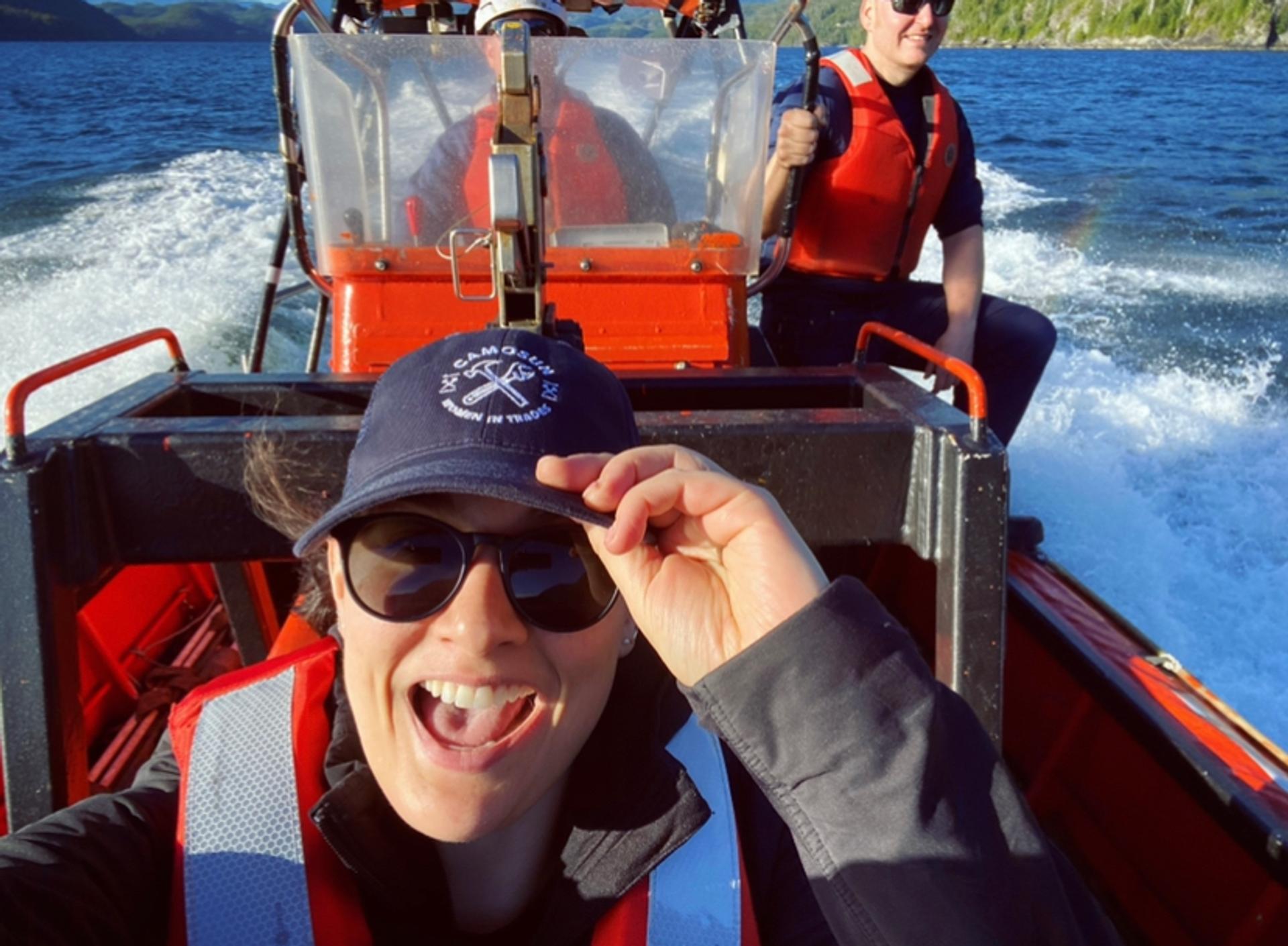
What has your experience of the maritime industry been?
Rebecca Marshall: I was like a deer in headlights when I boarded a vessel for the first-time last autumn! I didn’t know anyone and had no idea what to expect. Would I be safe? Would I fit in? These were some of the barriers that came with being a woman in a male-dominated space.
Fortunately, I received a warm welcome and quickly came to appreciate the friendliness and general hilarity of my colleagues. They are curious and supportive of my journey to reclaiming my Indigenous identity and are eager to learn when I share.
When we’re together at sea for 28 days at a time, it is important to maintain an affable attitude. I have had to learn a lot about emotional regulation, conflict management and resolution- because it’s not always rainbows and butterflies!
The 28 days on – 28 days off schedule seemed very daunting initially, but now I much prefer it to working a 9-5. We operate on a ‘lay-day’ system, which means I accumulate one paid day off for each day I work.
I am compensated well and have time to fully recharge when at home. I feel like I have a chance to build a life for myself now.
That’s so great to hear! And are there any links and resources you suggest for people who are interested in skilled trades at sea?
Rebecca Marshall: I keep my Linktree up-to-date with a variety of resources that I have found helpful. It includes links for those who are interested in starting or continuing their Red Seal apprenticeship, for becoming allies, learning about Indigenous-settler relations; and especially for Indigenous people looking for skills-training and, my favorite word – funding!
I would also recommend people to visit their nearest Native Friendship Centre, college or a WorkBC branch and check out their online Indigenous Skills Training Inventory to see what kind of resources are available in their area. The staff at these places want to help!
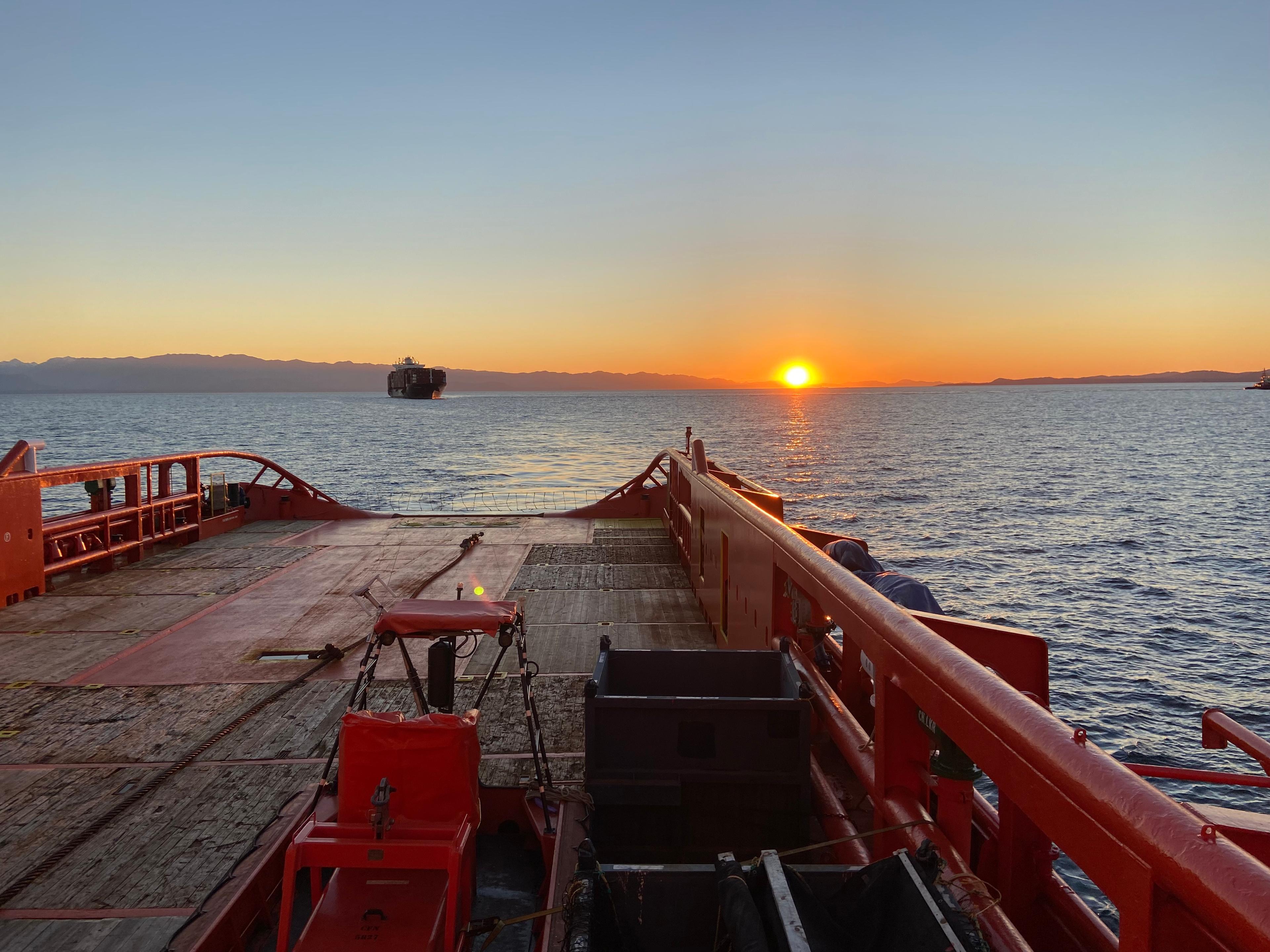
Are there any continuous education opportunities that you think are of value whilst also working in the industry?
Rebecca Marshall: So, with having six months off per year I took the opportunity to look for a distance learning university program that is relevant to my interests. I recently enrolled in the Bachelor of Technology, Trades and Technology Leadership program at Thompson Rivers University. My Red Seal qualifies me for 45 of 120 credits right off the bat and I’m able to do the program remotely at my own pace.
It’s great to see that there is a university that recognizes the hard work and skills that go into achieving the Red Seal certification.
Also, within the maritime industry there are many funding opportunities, especially for Indigenous people. For instance, Indigenous people and those who identify as women are invited to participate in the fully funded Bridge Watch Rating program at Camosun College to learn and enhance seamanship skills, earn nationally recognized certifications, and embark on an exciting, entry-level career in the maritime field.
I would encourage people to check with a nearby college for similarly funded programs.
Why do you think the percentage of women is so low in the skilled trades?
Rebecca Marshall: We are half the population but only make up 5% of skilled trades workers. Women are ready for the trades - as evidenced by our passion for these jobs. However, work still needs to be done. The culture is slowly changing, but still every woman has their story. Experiences of isolation, discrimination, and inappropriate work-place behaviour.
These incidents have caused women to leave the trades even if they have put in the hard work to achieve their Red Seal. Part of the solution is to have more women in leadership roles in order to increase representation. This is the goal of the BC Centre for Women in the Trades’ Regional Representative program.
This program offers leadership training to people from underrepresented groups to help level the playing field and increase equity in the trades.
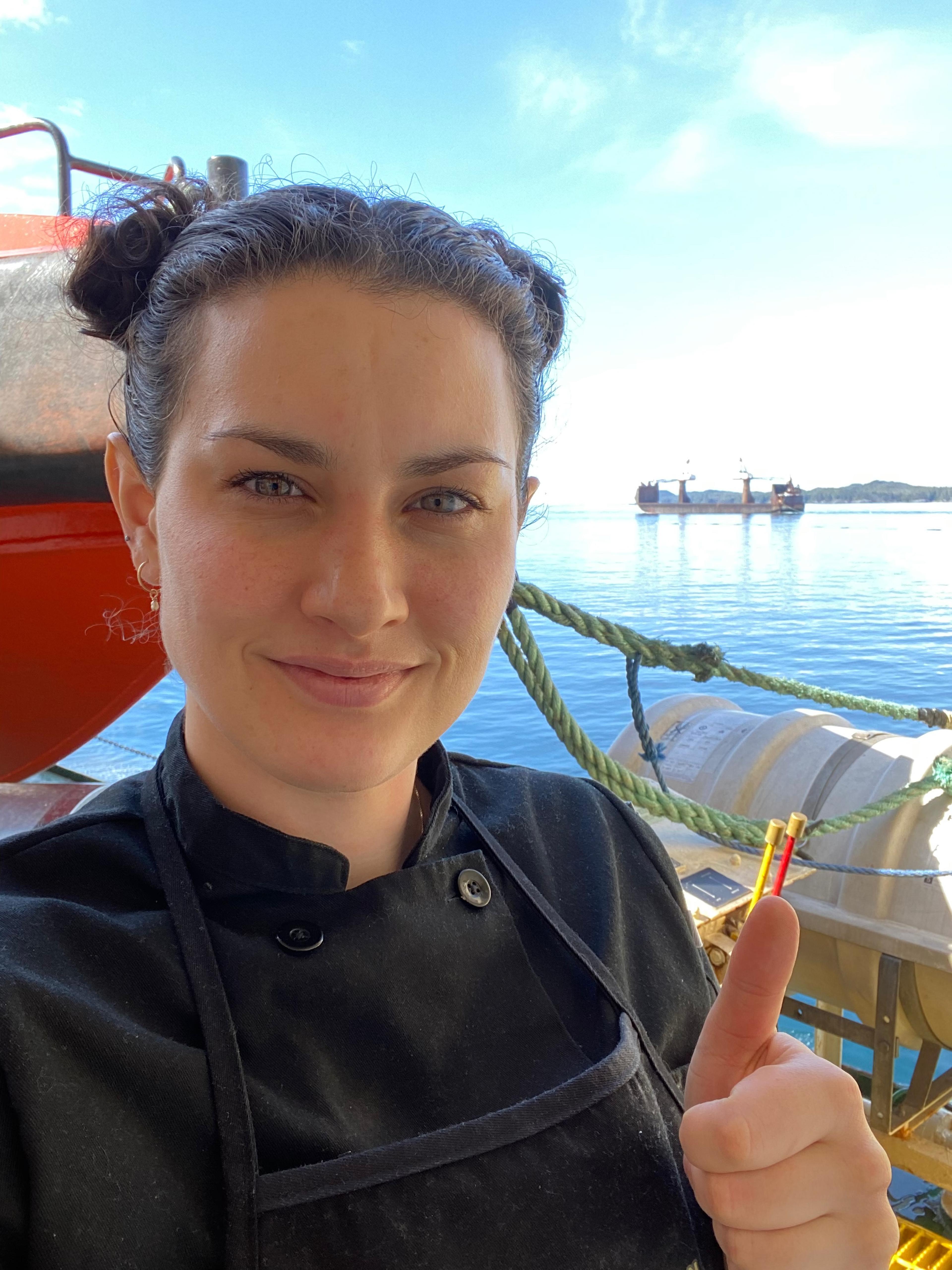
And any last piece of advice you’d like to give?
Rebecca Marshall: I think the main thing I’d like to share is that on the path to achieving my goals I was getting involved in the community. I’d suggest volunteering anywhere, or, even better, with an organization that relates to your career goals - even if only once a month.
The diverse and interesting people you’ll meet will expose you to different perspectives. You never know when someone will say that one small thing that suddenly resonates and opens your mind to new possibilities!
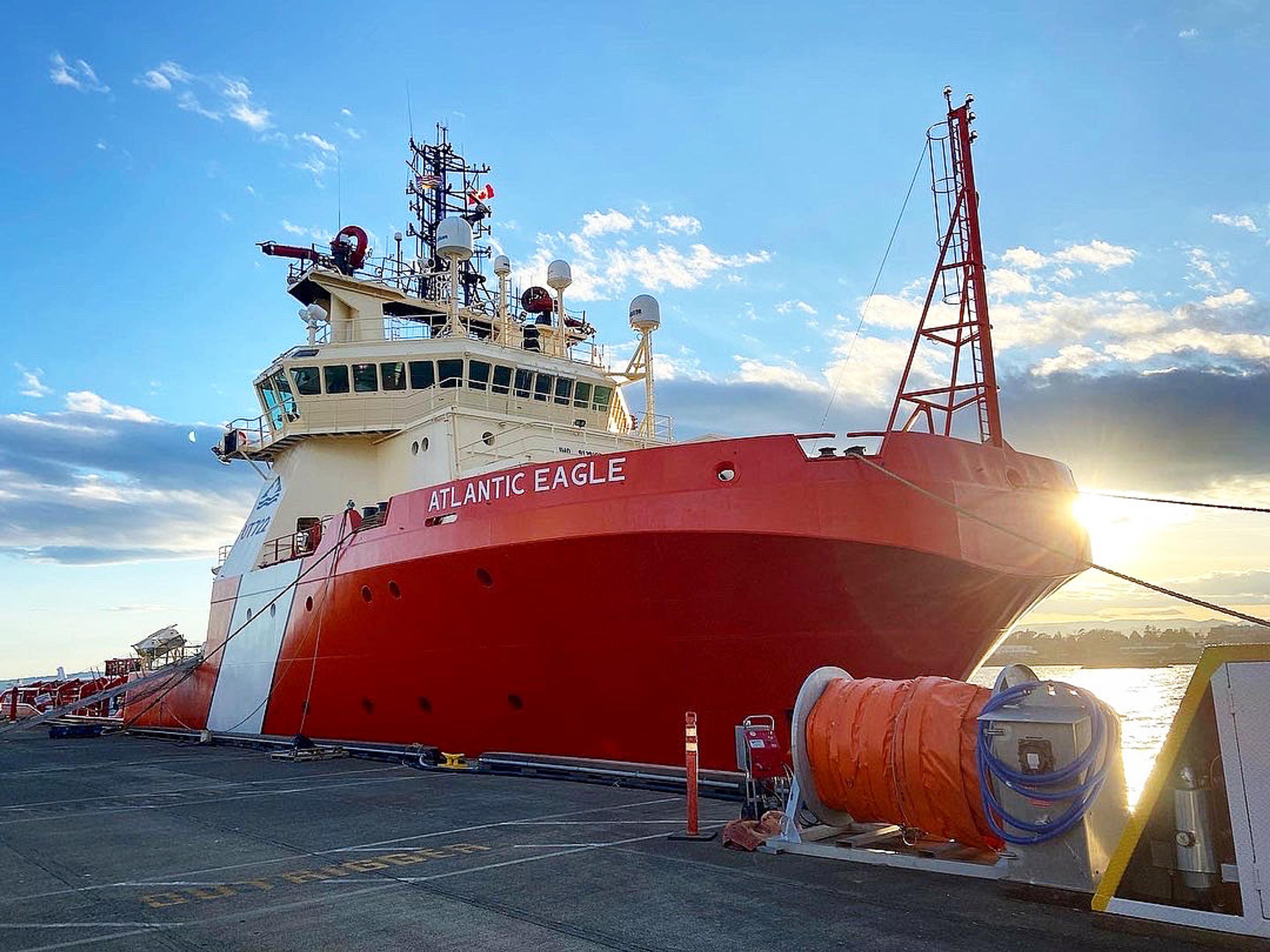
Connect with Rebecca on LinkedIn and check out her Linktree for information about the skilled trades and maritime industry, along with learning resources and funding for Indigenous people.